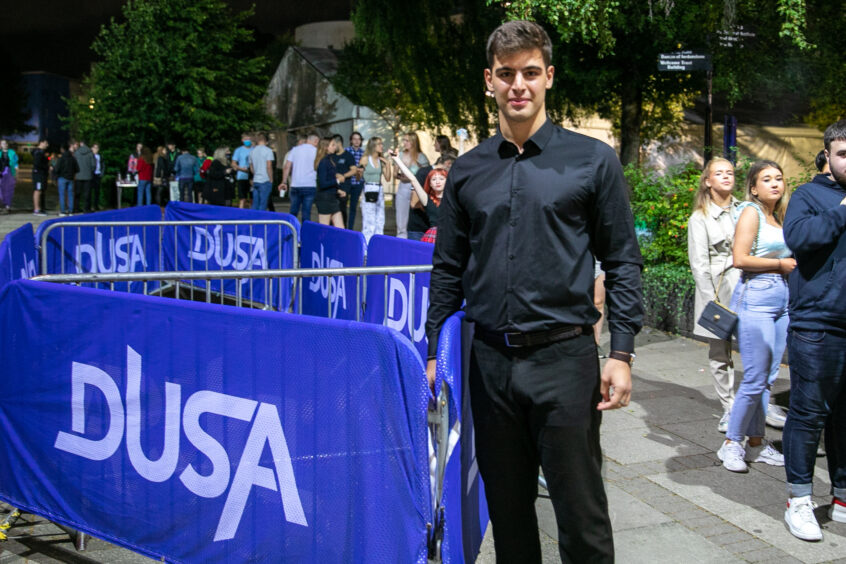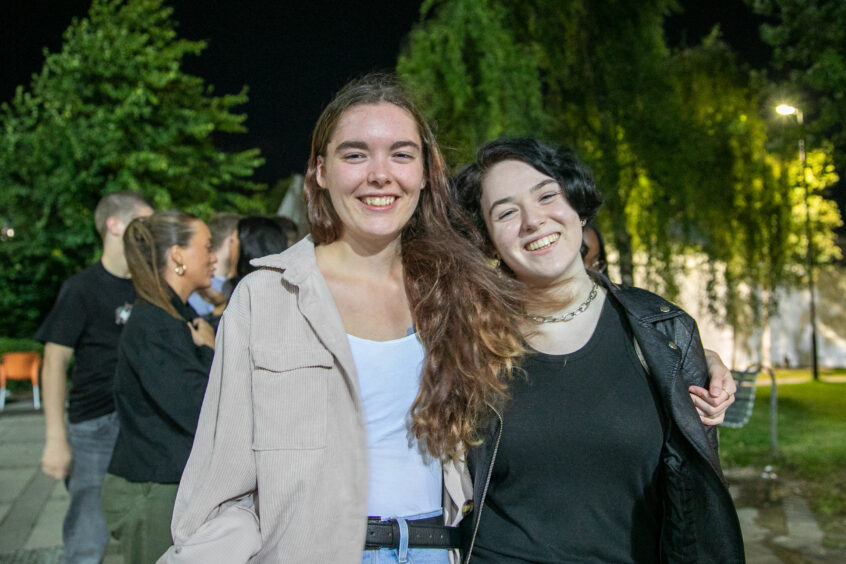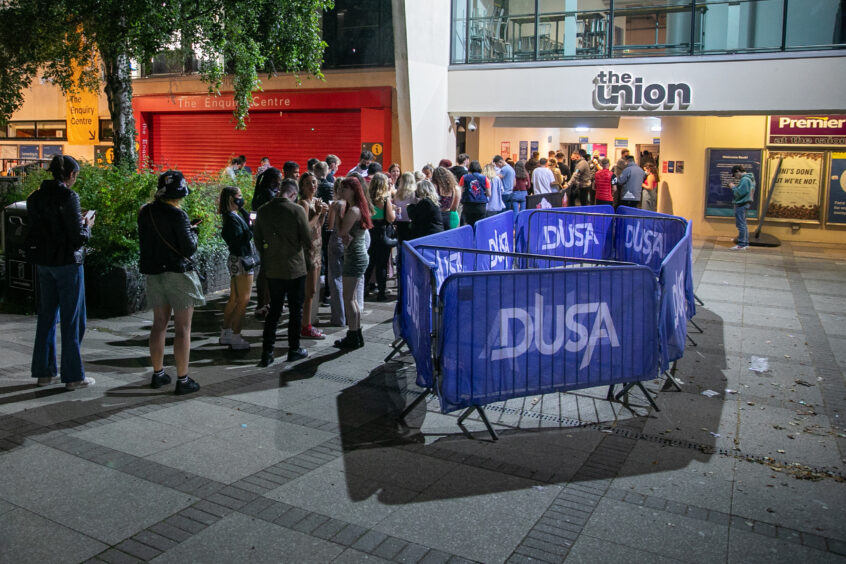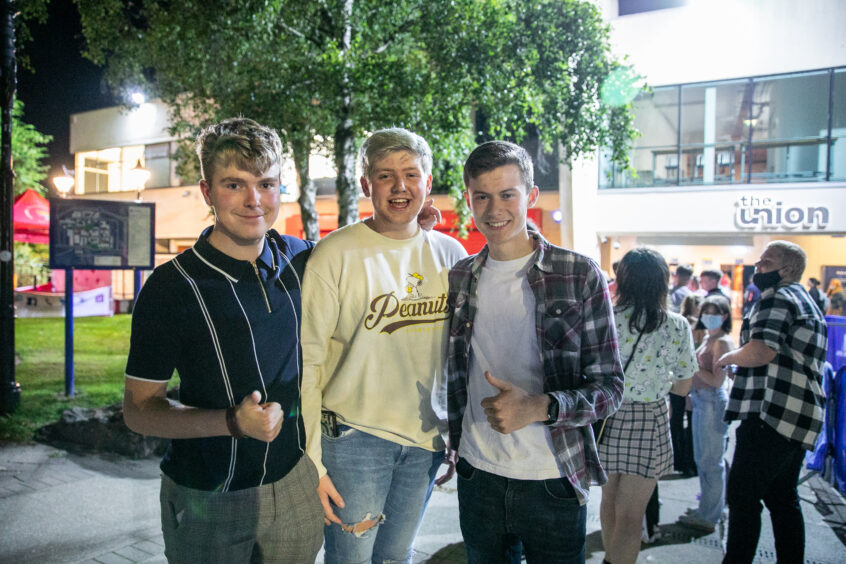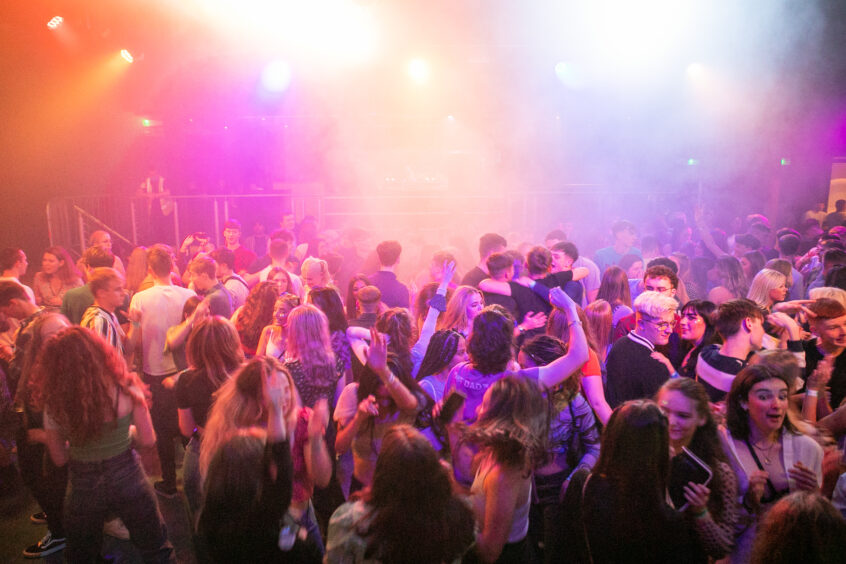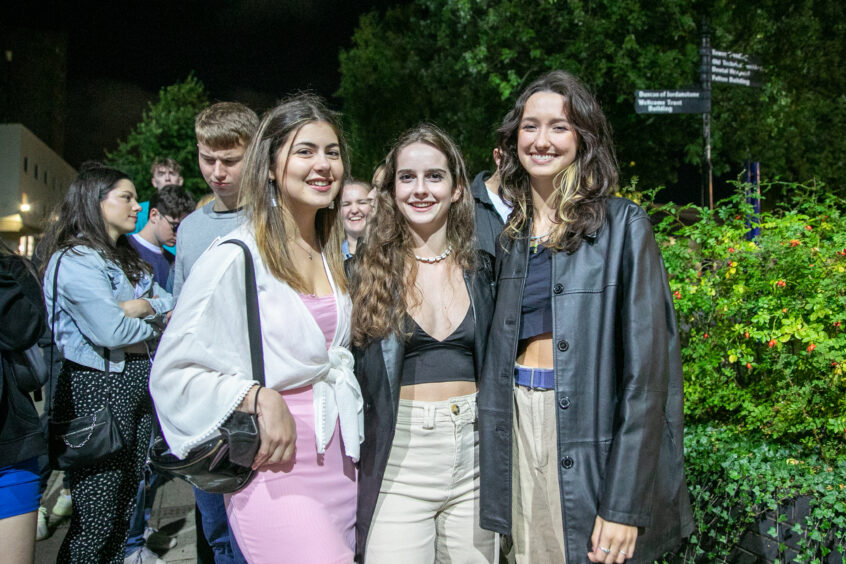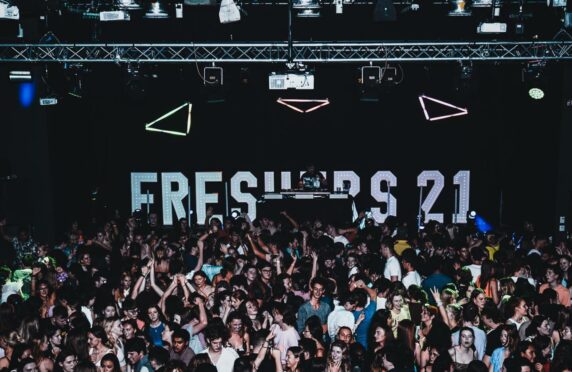After a year of lockdowns and Covid-19 restrictions, students across Tayside and Fife are returning to near-normal university settings.
But what does life in lectures look like in the wake of the pandemic? And how are students being supported back into uni?
The Courier has been finding out with a visit to Dundee University Students’ Association (DUSA).
Helping students after a year of Covid restrictions
More than 13,500 students are expected to study at Dundee University in 2021/22 – with about 4,500 entering their first year.
Meanwhile about 3,500 of those attending Dundee University are international students, and two-thirds of them are expected to study on campus this year.
After a year of virtual events and not much socialising, efforts are under way to ensure students do not feel isolated this coming academic year.
Dimitris Vidakis, the president of DUSA, says a five-year plan has been put in place to support students – with the advice team growing from one staff member to five in the wake of Covid.
He said: “We saw a massive increase in students who wanted to reach out for help and students during the pandemic – and our goal and vision was to be able to provide that option.
“I think freshers’ week has had a massive difference already.
“I think the general consensus all over Scotland is that it has a massive impact on the mental health of the students.
“Part of the student life has to do with the community, the sense of belonging, being a part a wider group where you’re engaging and interacting with each other.
“Our goal here is that we want to be the home away from home for a lot of people.”
Freshers’ week helping to break down barriers
Social events have been able to return following the easing of Covid-19 restrictions.
Traditionally a time for new students – or freshers – to meet others, it has often built a reputation for drunken antics.
But many insist the benefits go beyond the chance to enjoy a few too many drinks, helping to break down barriers and form relationships.
Second-year students Holly Creavin, 20, and Beth Lumsden, 18, had to enjoy freshers’ week online last year.
Holly, who studies history and politics, said: “We’re excited, I’ve been waiting for it long enough.
“We had some online stuff last year, but they were not the same.
“It was that scary thing that if you don’t get on with your flatmates then that is it, that is most of the people you are going to meet.”
Beth, who studies English literature, said: “Last freshers’ week we just stayed in the flat mostly.
“It was very weird being able to turn the party on mute, that was a bit strange.
“It was a lot harder to make friends, especially because we didn’t have classes either, we just had our flatmates.”
Deal-breaker for first years?
Dan Greenwood, Samuel Mcdonald and Laurence Petty, who are all first-year students, say they are glad to have an in-person freshers’ week this year.
Samuel says having to do things online may have been a deal-breaker for him.
The environmental science student said: “My sister was in first year last year so she kind of missed out on everything – it’s good it’s happening now.
“If freshers’ was online this year I’d be more inclined to take a gap year or something like that.”
Laurence says the importance of freshers’ week for getting to know people at uni cannot be underestimated.
He said: “We’ve definitely made friends from freshers’ so far, everyone’s in the same boat.
“It’s a positive thing, you get to meet people in a little bit more of an easier way than online, so I’m really glad that it’s in person.”
Among the international students are 19-year-olds Celia Ponce, Beatriz Gonzalez and Maria Otero, from Spain, who are all in second year.
They met each other through an international student group chat online last year.
Beatriz, who studies biomedical engineering, said: “We didn’t have a freshers’ week last year, so this week has been really good and we have all the clubs open.”
Maria, who studies biology, said: “I think this year is going to be a lot easier to make more friends – last year we were sort of limited because we couldn’t go out anywhere.”
Celia says she wanted to move to Dundee because she finds the city interesting, and has enjoyed her time there despite the pandemic.
The fine arts student said: “It’s very different to Spain and last year, even though Covid was kind of bad, it was good anyway.”
Impact on mental health
Jamie Hepburn, the minister for higher and further education, is also keen to highlight the benefits of getting together.
He said: “Freshers’ week is an important time for students to socialise and meet their new classmates, and this in turn can have a positive impact on their mental health and wellbeing.”
Abertay University
Dundee’s other university held its freshers’ week between September 13 and 17.
Robyn Thiel, president of the students’ association, said: “We made sure there was a variety of on campus and online events to ensure those who felt anxious were able to participate, or those isolating or experiencing Covid could still take part in some sort of freshers events.
“We are looking forward to being able to host more activities in the coming year, restrictions permitting.”
St Andrews University
Freshers at St Andrews enjoyed their first week of activities earlier this month, with about 7,000 people descending on the town centre.
Student rep Lottie Doherty says there is support provided from a range of groups.
She said “These extra-curricular activities are key to a great university experience, and it was amazing to see so many students having a great time.
“The pandemic has been a lonely and isolating experience for many students, and it’s brilliant that this year we are able to provide these opportunities for a more normal social life and enhanced university experience.”
